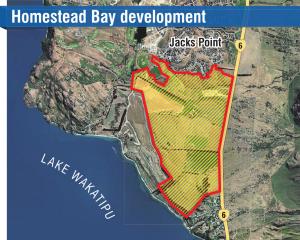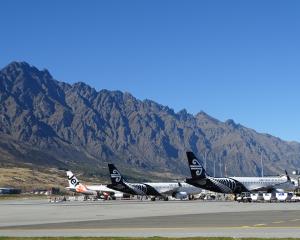
The National Party says it will take a tougher stand on freedom campers if it is re-elected next month.
In Queenstown on Saturday, Prime Minister Bill English said that would include banning vehicles without toilets from parking any more than about 200m from toilet facilities, and introducing a new smartphone app showing freedom campers where they could and could not camp.
‘‘We’re responding to calls from government and from our smaller communities, in particular, who on the one hand are benefiting - very considerably - from the growth in tourism numbers, but on the other hand want to see more control over freedom camping,’’ Mr English said.
‘‘Changes will help our regions and small towns deal better with the numbers and maintain the quality of their environment.’’
Any freedom campers in non-self-contained vehicles who ‘‘break the rules’’ - for example, if they parked too far away from toilet facilities - would be subject to instant fines, which could be issued by local councils or the Department of Conservation.
‘‘If the fine can’t be paid on the spot, it will be assigned to the vehicle owner, including rental car companies,’’ he said.
National would continue to allow councils and Doc to ban freedom camping from certain areas, but extend the powers to other owners of public land, in particular Land Information New Zealand (Linz) and the NZ Transport Agency (NZTA).
Mr English said the industry would also focus on ‘‘consistent public signage’’ across New Zealand to ensure ‘‘everyone understands their rights and responsibilities’’.
‘‘These changes won’t affect trampers, campers and hunters - they’re not considered freedom campers, [but] they’ll make the rules more consistent and easier to follow.
‘‘They’ll empower our local communities to choose for themselves the extent of freedom camping.’’
The Queenstown Lakes District Council enacted its Freedom Camping Bylaw in 2012. Under that, self-contained vehicles are permitted to camp overnight free on most land administered by the council away from town centres and residential areas, with the exception of some public land, including Doc land, where freedom camping is prohibited.
Non-self-contained vehicles are not permitted to freedom camp anywhere in the district.
Failure to comply results in $200 fines.
In late 2015, the council introduced freedom clamping, whereby clamps are applied to vehicles found to be illegally freedom camping. Offenders have to pay $200 to have the clamp removed, as well as a $200 fine.
However, in January this year the Otago Daily Times reported almost 70% of the fines issued to freedom campers in the Queenstown Lakes District since July 2015 were unpaid, costing ratepayers more than $400,000.
The Dunedin City Council (DCC) fared much better: between November 2015 and April 2016 it recovered 64% of fines issued.
Last week, the DCC considered public submissions on its new freedom camping bylaw, having sought feedback on three options to ease overflow at approved freedom camping sites at Warrington Domain and Ocean View.
Of the 250 submissions received, 185 (74%) supported a move to restrict camping to self-contained vehicles within the Dunedin boundary, the council staff’s recommended option.
Options to increase facilities and enforcement of rules for all types of vehicles at approved areas, and an option to create more areas for vehicles that were not certified self-contained, but limit the number of vehicles at sites, were not widely supported.












